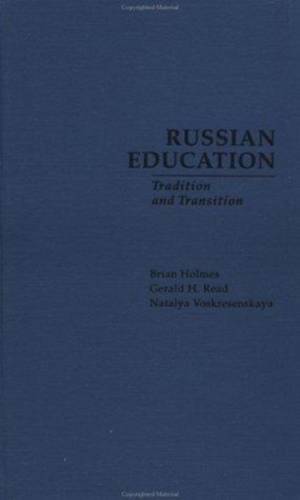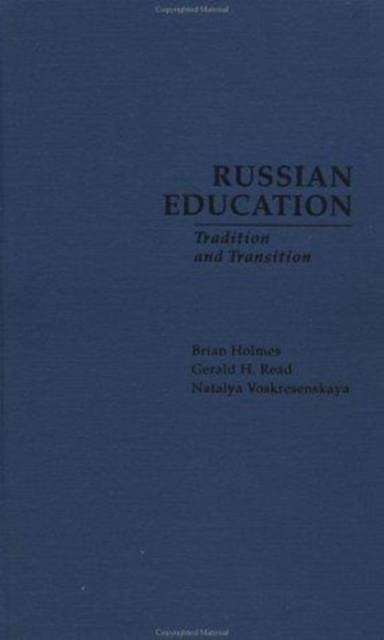
- Retrait gratuit dans votre magasin Club
- 7.000.000 titres dans notre catalogue
- Payer en toute sécurité
- Toujours un magasin près de chez vous
- Retrait gratuit dans votre magasin Club
- 7.000.0000 titres dans notre catalogue
- Payer en toute sécurité
- Toujours un magasin près de chez vous
183,45 €
+ 366 points
Description
In his address to the Communist Party in 1986, Mikhail Gorbachev blamed the Party for the disastrous state of his country. Within five years, the Party had been outlawed, he had been deposed, the Soviet Union had disintegrated, and its economy was in chaos. It is within this framework that the freely debated proposals to change a system of education inherited in 1917 from Czarist Russia are re-examined. During the Communist regime ideology had prevented realistic reform to the system. Under glasnost, open debate was encouraged for the first time. This book reveals the course taken by these debates and the conflicts between the personalities involved. Competing groups formulated new concepts of education. New child-centered aims were to replace those associated with the creation of a New Soviet Man. New school types and curriculums would allow pupils to specialize in either the sciences or the humanities. History teaching was to be liberalized, religious studies allowed and scientific materialism downgraded. Private and religious schools could be set up for the first time since 1917. Educational institutions could charge for a range of services, and major educational changes were agreed upon. The authors analyze these changes in light of an enormous amount of literature. In discussions with leading members of the Party (before its demise); educationalists, principals and teachers, and local authorities, the authors gained a comprehensive view of the policies before the collapse of the Soviet Union and after. But has the system changed? The authors, who have been visiting Soviet and Russian schools for more than 30 years, examine substantive changes in schools that previously had seemed old-fashioned and analyze Gorbachev's educational legacy.
Spécifications
Parties prenantes
- Auteur(s) :
- Editeur:
Contenu
- Nombre de pages :
- 400
- Langue:
- Anglais
- Collection :
- Tome:
- n° 26
Caractéristiques
- EAN:
- 9780815311690
- Date de parution :
- 01-03-95
- Format:
- Livre relié
- Format numérique:
- Genaaid
- Dimensions :
- 138 mm x 216 mm
- Poids :
- 588 g

Les avis
Nous publions uniquement les avis qui respectent les conditions requises. Consultez nos conditions pour les avis.






